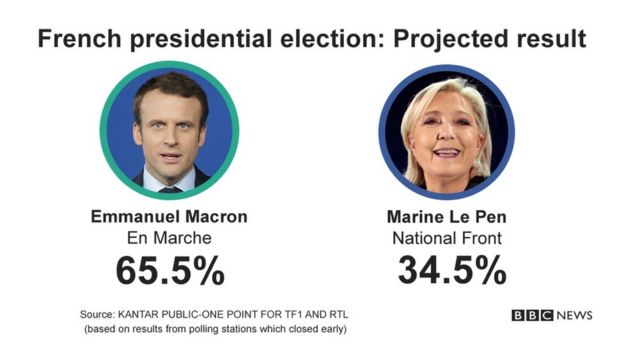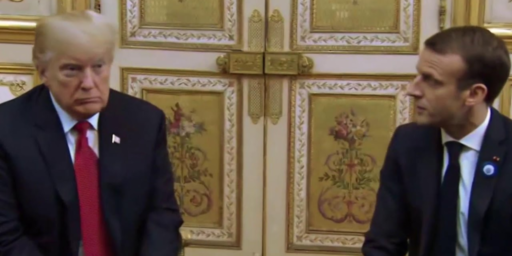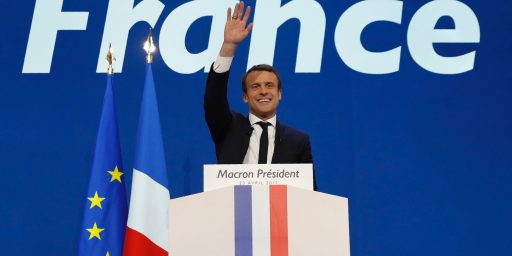Polling and the French Election
Since a lot of people have had their faith in polling shaken by Brexit and the Trump win (which was not the error some have made it out to be, btw), I recommend the following from Harry Enten at FiveThirtyEight: Le Pen Is Just A Gargantuan Polling Error Behind Macron.
Macron’s advantage over Le Pen has been fairly steady over the course of the year. Macron’s current lead, 22 percentage points, is well within the range of his average, 20 to 30 points, since January.
The current margin of victory for Macron is ~31 points, which means that any polling error would be in underestimating the margin.

Source: BBC





Super interesting article.
Everything seems to be a surprise these days.
Enten has been working hard to combat one of the biggest myths about the 2016 election: the notion that it constituted a massive, historically unprecedented failure of polling. In reality, it constituted a tiny, unremarkable polling error combined with a massive level of overconfidence on the part of Clinton supporters that wasn’t warranted by the polling data. This overconfidence almost certainly filtered to the Clinton campaign itself, and likely encouraged many to stay home or vote third party under the assumption that she was a certain winner.
But since the election, the myth has probably turned out to be useful. Now, everyone’s gone to the opposite extreme. Over the last couple of weeks I’ve been hearing constant warnings not to count Le Pen out even as she was trailing Macron by Goldwater-esque margins. (In France that’s not so remarkable: Chiraq got about 82% of the vote in 2002.) And given that French voters probably didn’t catch all the nuances of the US election assuming they paid attention at all, they were probably as susceptible as anyone to the conventional narrative that Trump’s victory was one of the biggest polling upsets ever.
One way or another, voters around the world now seem a lot less likely to believe “So-and-so couldn’t possibly win,” and all in all that’s probably not a bad thing.
@Kylopod: Indeed. The polling for 2016 was not the disaster people think it was. The only disaster were prognosticators like Wang and HuffPo going into election day giving HRC a 99% chance to win. The 538 model, which was maligned at the time, gave Trump a 30+% chance, which is a very real chance (as we saw).
Plus: the national polling basically got the popular vote margin correct.
@Steven L. Taylor: Well, for my part, I thought Wang’s estimates were nuts, and I said so at the time. Indeed, they were probably the biggest thing worrying me in the final days of the race–how so many Dems were clinging to his estimates like a security blanket (despite his really bad blunders in the past, like giving 99.997% chance–I kid you not!–to a Senate candidate who went on to lose by more than 5 points) and bashing the 538 site for making points about the need for caution that seemed to me to be utterly reasonable.